As I move through life, a recurring question surfaces: How many people truly live their lives fully awake—not just physically but consciously? How many are aware of their actions, reactions, and their underlying motivations? In my observations, perhaps less than 15% embody genuine self-awareness.
While there isn’t a specific global statistic on the prevalence of self-awareness, it remains a complex and subjective trait, varying widely among individuals. Research in psychology and organizational behavior explores this trait, emphasizing its developmental nature.
The importance of self-awareness is widely acknowledged, but its significance is heightened in the complex realm of digital product development. Amidst evolving technology, cultivating self-awareness becomes pivotal. In the collaborative domain of digital development, understanding personal strengths, biases, and communication styles is transformative. True leadership, especially servant leadership, is not possible without staying awake, open-minded, and keeping our egos low profile. In the space of work complexities and tight deadlines, self-awareness evolves from a mere skill to a mindset, paving the way for a more adaptive, resilient, and collaborative team spirit, ultimately leading to groundbreaking digital products.
Self-aware teams are in sync with each other, truly awoken to their nature and the nature of their team and team dynamics—their strengths and weaknesses—and leverage this knowledge. I truly do not believe that these kinds of teams can build ill-working products.
Self-Awareness
Self-awareness involves the conscious understanding of one’s thoughts, emotions, behaviors, strengths, weaknesses, and biases. It goes beyond mere self-knowledge and extends to the ability to reflect on and recognize the impact of one’s actions on oneself and others. Individuals with high self-awareness are attuned to their internal states, motivations, and how they interact with the external world.
Of course, individual experiences may vary but self-aware individuals may develop a heightened understanding of human nature, including the actions, reactions, and motivations of others, aligns with certain psychological principles.
In psychology, there is a concept known as theory of mind, which refers to the ability to attribute mental states—beliefs, intentions, desires—to oneself and others, and to understand that others have beliefs, intentions, and perspectives different from one’s own. Self-awareness is often linked to theory of mind, as being aware of one’s own mental states can contribute to recognizing and understanding the mental states of others.
Research in social psychology and cognitive science explores these aspects, indicating that individuals with higher levels of self-awareness may indeed exhibit greater empathy and understanding of others. Self-aware individuals, by delving into the depths of their own nature and motivations, inadvertently become astute observers of human behavior. This heightened self-awareness extends beyond personal introspection; it transforms into general better understanding of the human mind and nature.
Their curiosity, initially focused on unraveling the layers of their conscious and subconscious minds, naturally extends to perceiving similar patterns in others. This awareness allows them to discern nuances in the actions, reactions, and motivations of those around them. Very often, they find themselves in a sort of observer mindset, where they step back from immediate situations and view them from a broader perspective. It’s akin to being an observer of their own thoughts, actions, and the dynamics of a situation.
This mindset enables individuals to detach themselves from the minutiae of tasks and gain a more holistic view of the context, facilitating better decision-making, risk assessment, and adaptability. Visiting the observer space helps people emotionally distance themselves from the conundrum of day-to-day life. Instead of reacting, they observe what is happening from a neutral, uninvolved perspective. This approach provides better clarity on strategies for handling conflicts, managing complex situations, and, in general, being kinder to people, as their egos do not exist in the observer space.
Observer Mindset
The observer mindset enhances self-awareness by providing a mental space for reflective observation. When individuals adopt an observer mindset, they can objectively observe their thoughts and behaviors without immediate judgment. While self-awareness involves recognizing and managing personal biases, the observer mindset plays a crucial role by enabling individuals to objectively observe their biases in different situations.
Both self-awareness and the observer mindset contribute to adaptability and continuous learning. When individuals are self-aware, they can identify areas for improvement and personal development. The observer mindset complements this by encouraging a continuous learning approach through observing, analyzing, and adapting to changing circumstances.
In a team setting, self-awareness and the observer mindset contribute to effective communication. Individuals who are self-aware can communicate more transparently, considering their communication styles and potential biases. The observer mindset allows them to understand the broader context of communication, facilitating clearer and more nuanced interactions.
The interplay of self-awareness and the observer mindset is particularly valuable in collaborative environments. Team members who are self-aware can contribute to a positive team culture by recognizing their strengths, weaknesses, and areas for improvement. The observer mindset enhances collaboration by encouraging team members to step back, appreciate diverse perspectives, and work towards collective goals.
So, how do we cultivate self-awareness in ourselves and those around us? And how do we leverage this process, especially in teamwork within digital product development?
Self-awareness and the observer mindset, rooted in psychology and cognitive science, allow teams to perceive the broader context of their work. They become a philosophy, empowering teams to navigate uncertainties and deliver products that resonate with stakeholders and end-users alike.
Cultivating Self-Awareness and Leveraging Observer Mindset in Digital Product Development
Keep an open and challenge assumptions
Approaching anything with an open mind is foundational for effective exploration and discovery. It always helps to set aside preconceived notions and embrace curiosity. Encouraging a mindset that values diverse perspectives, questions assumptions, and promotes an open-minded approach to product development fosters creativity, innovation, and the discovery of unexpected insights.
Acknowledging and challenging assumptions is a continuous process that requires self-reflection. Fostering a culture of assumption awareness by encouraging the team to regularly reflect on their assumptions and biases creates opportunities for open dialogue, provides guidance on cultivating an environment where challenging assumptions contributes to unbiased decision-making, and ensures the team remains open to alternative perspectives.
Understand people’s perspectives through active listening and empathy
Building strong relationships hinges on understanding the perspectives of team members, vendors, and other players in digital development deeply through active listening, demonstrating empathy, and seeking to comprehend their goals and challenges.
This inclusive approach ensures that projects align not only with stakeholder expectations but also with the diverse perspectives within the digital development ecosystem. Similarly, ensuring that you listen carefully and actively during story refinement, retrospectives, and other day-to-day meetings is crucial for fostering a safe and collaborative space with team members. This principle of understanding people’s perspectives through active listening and empathy extends beyond internal team dynamics. Building strong relationships in these varied contexts relies on a deep understanding of the perspectives, goals, and challenges of all involved parties.
Clearly communicate and use self-awareness to navigate challenging conversations
Transparent and proactive communication is essential for maintaining trust and transparency with people involved in the collaborative process. Providing regular updates to both business and development teams through clear and accessible channels, addressing concerns before they escalate, and ensuring everyone is well-informed establishes a collaborative relationship and demonstrates a commitment to delivering successful outcomes aligned with expectations.
Navigating challenging conversations with people involved in the collaborative process requires a high level of self-awareness as well. Being conscious of personal biases, emotions, and communication styles allows leaders to approach difficult discussions with empathy and strategic clarity. Reflecting on one’s own reactions, actively listening to concerns, and adapting communication strategies based on the context contribute to stronger and more resilient relationships. This principle of understanding people’s perspectives through active listening and empathy extends beyond internal team dynamics.
Cultivate empathy to understand team dynamics and foster a culture of collaboration
Empathy is the cornerstone of effective leadership and teamwork. By cultivating empathy, we can better understand the unique strengths, challenges, and dynamics within our team. Actively listening to team members, acknowledging their perspectives, and considering individual strengths foster a collaborative and supportive environment. Leaders who empathize with their team can make informed decisions that consider the well-being and contributions of each member.
Building a collaborative culture goes beyond a checklist of practices; it requires establishing a mindset of openness, feedback, and perpetual growth. Fostering open communication channels, encouraging constructive feedback, and promoting a commitment to continuous improvement creates an environment where team members feel empowered to share ideas, provide feedback, and actively contribute to the team’s collective success. This enhances team cohesion, innovation, and adaptability.
Lead by example
Leadership is most impactful when it stems from authenticity and self-awareness. Leading by example involves demonstrating the qualities expected from the team, such as self-awareness and an observer mindset. Openly acknowledging strengths, weaknesses, and biases creates a culture that values transparency and continuous self-improvement. The observer mindset, characterized by a holistic perspective and strategic decision-making, becomes a guiding philosophy for the entire team when exemplified by leaders.
A growth mindset is a catalyst for innovation and resilience within a team. Leaders play a pivotal role in instilling this mindset by encouraging team members to embrace challenges as opportunities for learning and growth. Framing setbacks as valuable learning experiences, celebrating achievements, and fostering a sense of curiosity and adaptability propel the team to explore new possibilities, overcome obstacles, and continually enhance their capabilities.
Mindfulness practices contribute to a focused and productive team environment. Leaders can integrate mindfulness into daily rituals such as stand-ups, retrospectives, and planning sessions by encouraging team members to be fully present and engaged. Fostering a moment of reflection, promoting active listening, and creating a space for intentional communication enhances team awareness, reduces stress, and promotes a positive and collaborative atmosphere during key project phases.
Helpful Self-Awareness Team Practices
External Input: Encourage seeking feedback from external stakeholders or users. External perspectives provide valuable insights and contribute to a more comprehensive self-awareness.
Personality Tests: Incorporate well-established personality assessments such as Myers-Briggs Type Indicator (MBTI) or DISC profiles. These tools can provide individuals with insights into their behavioral tendencies, enhancing self-awareness.
StrengthsFinder: Utilize StrengthsFinder assessments to identify and leverage individual strengths within the team. Understanding one’s strengths contributes to better collaboration and task allocation.
Personality Workshops: Organize workshops focused on understanding different personality types and communication styles. This promotes empathy and self-awareness, improving team dynamics.
Team Retreats: Plan occasional team retreats where members engage in activities fostering open communication, trust-building, and self-reflection.
Workshops on Emotional Intelligence: Conduct workshops on emotional intelligence, emphasizing the importance of recognizing and managing emotions. This training contributes to heightened self-awareness and improved interpersonal relationships.
Emotionally Intelligent Leadership: Encourage leaders to model emotionally intelligent behavior, creating a ripple effect within the team.
Understanding Strengths: Leverage individual strengths by aligning team members with roles that complement their skills. This targeted approach not only enhances productivity but also fosters a sense of fulfillment.
Rotational Roles: Implement rotational roles within the team, allowing members to experience different aspects of product development. This exposes them to varied challenges, contributing to personal and professional growth.
Communication Workshops: Organize workshops on effective communication styles. Equip team members with the ability to adapt their communication based on individual preferences, ensuring clarity and reducing misunderstandings.
Utilizing Communication Tools: Implement digital tools that facilitate transparent and open communication. Platforms that encourage asynchronous communication and feedback provide space for thoughtful responses.
Cross-Functional Collaboration: Foster collaboration between team members with diverse skills and backgrounds. Encourage cross-functional teams to bring varied perspectives to problem-solving, promoting innovation.
Inclusive Decision-Making: Ensure that decision-making processes are inclusive, allowing for input from all team members. This not only leverages collective intelligence but also enhances a sense of ownership and commitment.
Learning Opportunities: Provide opportunities for continuous learning and skill development. A learning culture promotes self-awareness by encouraging individuals to identify areas for improvement and pursue relevant training.
Self-Awareness in a Nutshell
- Embrace Change: Cultivate a mindset that sees change as an opportunity for growth.
- Continuous Learning: Encourage a culture of continuous learning within the team.
- Open Communication: Establish channels for honest dialogue within the team and with stakeholders.
- Balance Autonomy and Collaboration: Empower team members while fostering collaboration.
- Celebrate Successes and Learn from Failures: Acknowledge achievements and learn from setbacks.
- Feedback Loop: Establish a robust feedback loop for iterative improvement.
- Customer-Centric Approach: Keep the end-user in focus, seeking regular feedback.
Cultivating self-awareness is an ongoing journey, and leveraging this awareness in digital product development requires a proactive and intentional approach. By combining personal reflection practices, feedback mechanisms, and tailored role assignments with agile principles, teams can create an environment where self-awareness thrives, contributing to enhanced collaboration and exceptional product outcomes.
Incorporating self-aware observational practices into day-to-day digital development, teams elevate their approach beyond processes. The development methodology becomes a philosophy fostering resilience, adaptability, and a commitment to delivering exceptional digital products. This transformative approach propels teams toward agile excellence, acknowledging that fostering self-awareness and an observer mindset is more than a process—it’s a journey toward excellence.




No responses yet